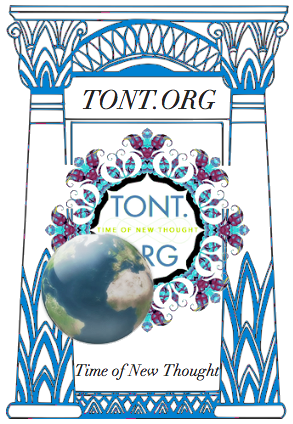Leonard Cohen's, "Hallelujah" resurrected into popular culture due to singing contests and subsequent many, many cover renditions by multiple artists. It endures not only due to its haunting and beautiful melody but also lyrics sounding profound and deep, dramatic enough for singers of any age to look/sound deeply profound. But, what does Cohen mean to convey by invoking "hallelujah"? What place does this word, this call unto the heavens, celebration of things glorious and sacred, rescued, redeemed have to do with the achingly human scenarios Cohen crafts into poetry? Does the use of the word "Hallelujah" itself in fact elevate and expand the dimensions of his piece, creating a vehicle transporting the listener to greater mysteries felt simultaneously within and celestially? Finally, how can a song about brokenness, degradation and myriad human failings leave us feeling better from having heard it and not worse? Cohen, high priest of his own genre, sprinkles the mystical all over the profane and unapologetically claims, "Hallelujah." What does that mean to us? I can only share my interpretation -- my truth -- I haven't come to fool you.
First hearing the song in '91 on KD Lang's, "Drag" album, Lang's dreamy smoky atmosphere laden tones made the song less about meaning than just sheer beauty & any live performance by Lang seems to draw upon the ocean itself in the power of her voice. It is calm controlled assured certain, rising steadily, above all a force leaving the audience awestruck wondering WHAT exactly did they just hear/see/witness? Lang is the right guide as we journey upon the waves with her, knowing we'll be pulled along and taken in/under the swells then gently placed back on shore, baffled like David, experience imprinted into our beings. But without Cohen's mightily furbished vessel, Lang could not take us on this journey so it is both material and artist which moves us. Damien Rice's simple acoustic version, also jaw dropping, calling from the farthest other end of the spectrum works in its simplicity, stunningly so because Damien Rice cannot sing a false note. Rice sings with such purity and idiosyncrasy, affectation impossible, coaxing forth another face and glittering facet of Cohen's jewel. Delivery in this manner, stripped bare & sincere, emphasizes the magnitude of "Hallelujah's" meaning.
These two exemplars are spectacularly done to be sure, and Leonard Cohen's original sing/speak version, full of depth and kitsch, conjures a setting of berets and beatnik clubs, hoping one would be hip and cool enough to accommodate the troubadour. But, almost anyone who sings the song becomes a conduit for something special and now let us come to why. Each of us has been sold a dream in our youth, an ideal we pretend is real because we haven't yet discovered that the fantasies contain within them plagues of our proclivity and until we confront them we are ruled by them and, often, upon encountering them, we remain ruled by them except now it is reality and the fantasy as escape can no longer be as the dreams lay in shattered pieces on the ground, often covered in shame.
One party, the narrator, still a proponent of magic, goads, "But you don't really care for music, do you?" He has come to know the trompe l'oeil that at first deceived him. Overthrown by her beauty and the moonlight, the dreamer saw a possible fulfillment of his long instilled search, projecting its sincere and naive imagery unto this object who, in turn, takes the inherently doomed offering as sacrificial subject before her, hers to break, to be transgressor & dealer of bondage becoming the new source of addiction for the same old problem. Here, love is but a word to acquire power, to manipulate; ownership is the end game and the fun a new toy to be enchanted with then destroy. The fun has a map and goal -- how can we begin to dim the light (which attracted in the first) -- and beyond that, how may we entrap and extinguish it, how may all hope be killed in this individual so they're forever broken, and the lust for power and cruelty finally satisfied -- but always only momentarily and the degradation begins again...
What would hold someone in such a place? If there weren't a dazzling spell cast, a spark of happiness, a desperate need to remember only the "good times", many a relationship would end much more quickly. The hook is baited with the initial bliss of the exciting and new and it's this possibility, the possibility of restoring that state keeping too many people as willing victims in a situation so long degraded and beyond repair since it's clear one party will not partake if its reconstruction. The party in earnest feels if they can just get the circumstances back to the way they were, then things will go back to how they were and the war will end, weapons down, truce, then reconciliation. But, Cohen's lyrics reveal a man too intelligent not to realize futility has announced itself time and again yet he must explain, still, why it was all still worth it -- why, "what a waste" should not be bitterly and resentfully reduced to just waste of time.
He lays it all on the line, he tells it like it is: You don't care for music, you do not care for me but wish to control me and I let you. Every word I say you twist into blame or make me suffer for it. Anything I say or do you use to break me or accuse me of some crime to paint me into someone as awful as you. You think you can treat me like trash just because I walked into your life and abuse me because you think I will never. When you do wave a white flag it's only because you've been pushed to do it, or are afraid you pushed too hard and will lose your partner in this disgusting dance, but, I've been here before, alone, and I don't need you; I will walk off this floor alone. I do not blame you, I didn't come to make a fool of you as you've tried to do to me. This is not love, physicality does not define love, and the turmoil and attriting of my soul are no longer yours to inflict. In learning this, I have learned to love myself enough to walk away. "Even though it all went wrong, I stand before the God of song, with nothing on my tongue but Hallelujah." Hallelujah. If only divorces could end with such understanding, t'would be the end of an industry.
This ode, this love letter to the dark and dangerous paths we take to grow, teaches us that -- through it all -- through the misery and fear, anger and revulsion, always, always there is forgiveness and hope of a way out. It is repeated perfectly, eloquently, absolutely and correctly throughout the song, freeing persons wise enough to utter it even as the world is crashing about them, surviving in the worst kind of human atrocities. But Cohen's Hallelujah is a more personal one of man against himself, especially through the exorcism of his exploration into the emetical. The French call it la nostalgie de la boue and you can pretty it up all you like with Catherine Deneuve or expensively well-appointed torture chambers but, being in the dirt is still dirty and no matter how much you think you like it you're going to have to move on one day. We are built of better stuff than any subversive inclinations and we must bear this truth out and find out! If you remain in the throws of diminutizing, remember Leonard Cohen. Say Hallelujah. Say Hallelujah often. Say it especially when things are going wrong and enact the grace of God transforming the irredeemable as redeemed, even as it's happening! For that is what the redeemer does: He redeems.
We don't always have the knack for forgiving, however, especially when it comes to ourselves. If we can stop with the guilt, the blame, the punishment, the remorse
But, the narrator will not succumb entirely to la nostalgie de la boue.
We have within ea
All the broken things we've left trashed along our path.
soul attriting
trompe l'oeil of your choosing not just a trick of the eye but your mind
The thousand tiny cuts, the attriting of our beings,
Exorcising la nostalgie de la boue
whatever plague of your proclivity
exploring the emetic
if we helped one another to become better, ushered forth a reversal if we look up we'll see a halo so wide it could lasso the sky. Hallelujah.
First hearing the song in '91 on KD Lang's, "Drag" album, Lang's dreamy smoky atmosphere laden tones made the song less about meaning than just sheer beauty & any live performance by Lang seems to draw upon the ocean itself in the power of her voice. It is calm controlled assured certain, rising steadily, above all a force leaving the audience awestruck wondering WHAT exactly did they just hear/see/witness? Lang is the right guide as we journey upon the waves with her, knowing we'll be pulled along and taken in/under the swells then gently placed back on shore, baffled like David, experience imprinted into our beings. But without Cohen's mightily furbished vessel, Lang could not take us on this journey so it is both material and artist which moves us. Damien Rice's simple acoustic version, also jaw dropping, calling from the farthest other end of the spectrum works in its simplicity, stunningly so because Damien Rice cannot sing a false note. Rice sings with such purity and idiosyncrasy, affectation impossible, coaxing forth another face and glittering facet of Cohen's jewel. Delivery in this manner, stripped bare & sincere, emphasizes the magnitude of "Hallelujah's" meaning.
These two exemplars are spectacularly done to be sure, and Leonard Cohen's original sing/speak version, full of depth and kitsch, conjures a setting of berets and beatnik clubs, hoping one would be hip and cool enough to accommodate the troubadour. But, almost anyone who sings the song becomes a conduit for something special and now let us come to why. Each of us has been sold a dream in our youth, an ideal we pretend is real because we haven't yet discovered that the fantasies contain within them plagues of our proclivity and until we confront them we are ruled by them and, often, upon encountering them, we remain ruled by them except now it is reality and the fantasy as escape can no longer be as the dreams lay in shattered pieces on the ground, often covered in shame.
One party, the narrator, still a proponent of magic, goads, "But you don't really care for music, do you?" He has come to know the trompe l'oeil that at first deceived him. Overthrown by her beauty and the moonlight, the dreamer saw a possible fulfillment of his long instilled search, projecting its sincere and naive imagery unto this object who, in turn, takes the inherently doomed offering as sacrificial subject before her, hers to break, to be transgressor & dealer of bondage becoming the new source of addiction for the same old problem. Here, love is but a word to acquire power, to manipulate; ownership is the end game and the fun a new toy to be enchanted with then destroy. The fun has a map and goal -- how can we begin to dim the light (which attracted in the first) -- and beyond that, how may we entrap and extinguish it, how may all hope be killed in this individual so they're forever broken, and the lust for power and cruelty finally satisfied -- but always only momentarily and the degradation begins again...
What would hold someone in such a place? If there weren't a dazzling spell cast, a spark of happiness, a desperate need to remember only the "good times", many a relationship would end much more quickly. The hook is baited with the initial bliss of the exciting and new and it's this possibility, the possibility of restoring that state keeping too many people as willing victims in a situation so long degraded and beyond repair since it's clear one party will not partake if its reconstruction. The party in earnest feels if they can just get the circumstances back to the way they were, then things will go back to how they were and the war will end, weapons down, truce, then reconciliation. But, Cohen's lyrics reveal a man too intelligent not to realize futility has announced itself time and again yet he must explain, still, why it was all still worth it -- why, "what a waste" should not be bitterly and resentfully reduced to just waste of time.
He lays it all on the line, he tells it like it is: You don't care for music, you do not care for me but wish to control me and I let you. Every word I say you twist into blame or make me suffer for it. Anything I say or do you use to break me or accuse me of some crime to paint me into someone as awful as you. You think you can treat me like trash just because I walked into your life and abuse me because you think I will never. When you do wave a white flag it's only because you've been pushed to do it, or are afraid you pushed too hard and will lose your partner in this disgusting dance, but, I've been here before, alone, and I don't need you; I will walk off this floor alone. I do not blame you, I didn't come to make a fool of you as you've tried to do to me. This is not love, physicality does not define love, and the turmoil and attriting of my soul are no longer yours to inflict. In learning this, I have learned to love myself enough to walk away. "Even though it all went wrong, I stand before the God of song, with nothing on my tongue but Hallelujah." Hallelujah. If only divorces could end with such understanding, t'would be the end of an industry.
This ode, this love letter to the dark and dangerous paths we take to grow, teaches us that -- through it all -- through the misery and fear, anger and revulsion, always, always there is forgiveness and hope of a way out. It is repeated perfectly, eloquently, absolutely and correctly throughout the song, freeing persons wise enough to utter it even as the world is crashing about them, surviving in the worst kind of human atrocities. But Cohen's Hallelujah is a more personal one of man against himself, especially through the exorcism of his exploration into the emetical. The French call it la nostalgie de la boue and you can pretty it up all you like with Catherine Deneuve or expensively well-appointed torture chambers but, being in the dirt is still dirty and no matter how much you think you like it you're going to have to move on one day. We are built of better stuff than any subversive inclinations and we must bear this truth out and find out! If you remain in the throws of diminutizing, remember Leonard Cohen. Say Hallelujah. Say Hallelujah often. Say it especially when things are going wrong and enact the grace of God transforming the irredeemable as redeemed, even as it's happening! For that is what the redeemer does: He redeems.
We don't always have the knack for forgiving, however, especially when it comes to ourselves. If we can stop with the guilt, the blame, the punishment, the remorse
But, the narrator will not succumb entirely to la nostalgie de la boue.
We have within ea
All the broken things we've left trashed along our path.
soul attriting
trompe l'oeil of your choosing not just a trick of the eye but your mind
The thousand tiny cuts, the attriting of our beings,
Exorcising la nostalgie de la boue
whatever plague of your proclivity
exploring the emetic
if we helped one another to become better, ushered forth a reversal if we look up we'll see a halo so wide it could lasso the sky. Hallelujah.




